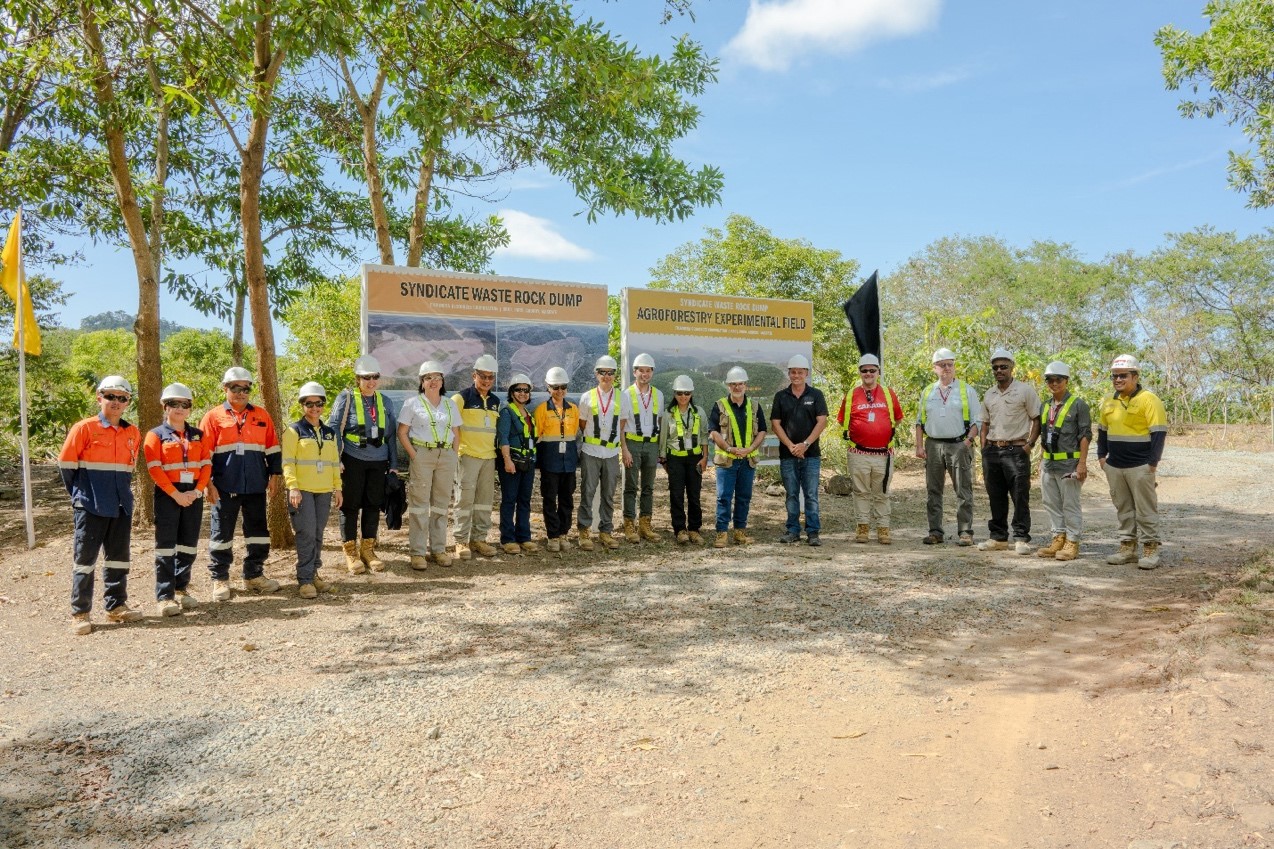Canada vows anew to help drive PH economy, cites sustainable mining
Canadian Ambassador to the Philippines David Hartman vowed to firm up its shared commitment with Filminera Resources Corporation (Filminera) and Phil Gold Processing & Refining Corp. (PhilGold) to help “drive economic growth and empower communities” through responsible and sustainable mining in the Philippines.

The Ambassador, along with Embassy of Canada’s Senior Trade Commissioner Guy Boileau and top environmental and trade officials toured the mining and milling operations plus the vast environmental programs and various social programs being implemented by the two firms operating inside the Masbate Gold Project site in Aroroy, Masbate.
They cited an experimental farm surrounding the mine site of two mining firms in Masbate, spanning hundreds of hectares, including the use of waste rocks which were assembled and fashioned into the shape of a mountain.
More than 28,000 forest and crop trees, 23,000 intercropping trees,17,000 cover crops, and 400 bamboos have since been planted – since the trial farm project was started in November 2015.
The farm has been planted with high value crops such as dragon fruit, coffee, pineapple, among others – in a bid to discover which of these crops will most feasible to breed for future livelihood.
The “mountain” – covered with top soil -- is equipped underneath with proper infrastructure support and drainage.
In a statement to the media issued today, May 1, Ambassador Hartman was quoted citing the value of “sustainable partnerships in the extractive industries,” geared, not only for economic prosperity, but for “ensuring responsible stewardship of resources for the benefit of present and future generations.”
“This is precisely what the Masbate Gold Project is all about,” the Canadian chief diplomat pointed out. “Canada remains steadfast in its commitment to fostering these partnerships, driving economic growth, and empowering communities in Masbate and across the Philippines,” the ambassador said.
Environment and Natural Resources Undersecretary Carlos Primo David was also quoted commending the reforestation efforts in both upland and coastal areas, including the innovative experimental farm. He underscored the imperative that two firms must continue to greatly contribute to the environmental preservation and conservation of Masbate Province.
Filminera and PhilGold are the two firms operating inside the Masbate Gold Project site. Canada-based B2Gold has minority interest in Filminera, which holds mining permits and surface rights, plus an environmental compliance certificate (ECC) in the Aroroy minesite. On the other hand, Phil Gold, which runs the gold processing plant, is wholly-owned by the same Canadian firm.
B2Gold is a low-cost international senior gold producer based in Vancouver in Canada. It operates mine sites in other countries -- including Namibia and Mali and is constructing a new mine in northern Canada.
The Ambassador also visited the Automated Mist Clonal Nursery, a project that plays a significant role in the two firms’ reforestation efforts for the municipality of Aroroy, as well as the livelihood of the community. Situated just outside the mine site, it provides access to community residents who avail of the seedlings for their own businesses, or just to beautify their backyards.
The 2,586 sqm forest and fruit trees nursery can accommodate more than 75,000 seedlings -- a commitment to reforestation and even afforestation as part of their vital strategy to mitigate the environmental impact of mining and restore biodiversity, prevent soil erosion, and preserve watershed areas crucial for local ecosystems.